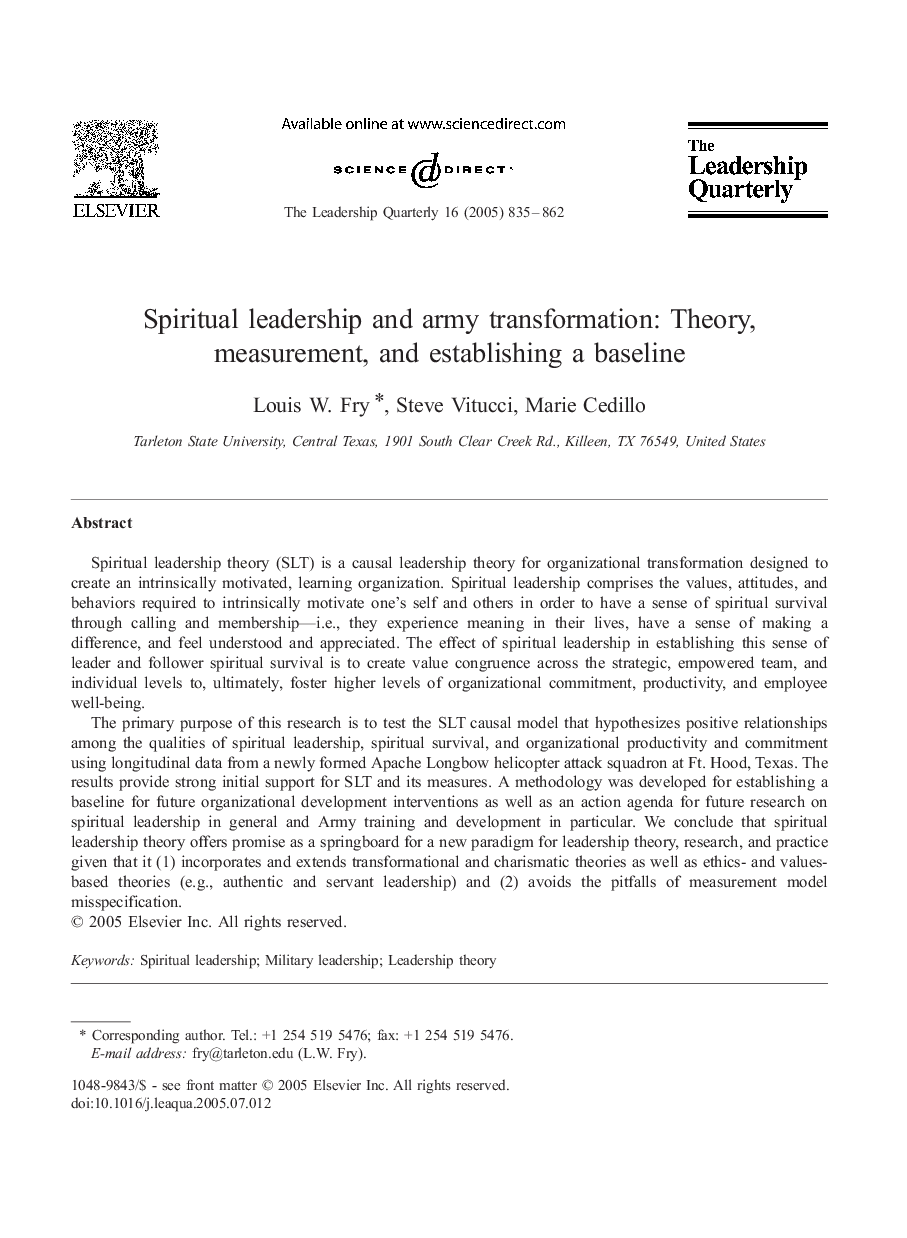| Article ID | Journal | Published Year | Pages | File Type |
|---|---|---|---|---|
| 10439577 | The Leadership Quarterly | 2005 | 28 Pages |
Abstract
The primary purpose of this research is to test the SLT causal model that hypothesizes positive relationships among the qualities of spiritual leadership, spiritual survival, and organizational productivity and commitment using longitudinal data from a newly formed Apache Longbow helicopter attack squadron at Ft. Hood, Texas. The results provide strong initial support for SLT and its measures. A methodology was developed for establishing a baseline for future organizational development interventions as well as an action agenda for future research on spiritual leadership in general and Army training and development in particular. We conclude that spiritual leadership theory offers promise as a springboard for a new paradigm for leadership theory, research, and practice given that it (1) incorporates and extends transformational and charismatic theories as well as ethics- and values-based theories (e.g., authentic and servant leadership) and (2) avoids the pitfalls of measurement model misspecification.
Related Topics
Social Sciences and Humanities
Business, Management and Accounting
Business and International Management
Authors
Louis W. Fry, Steve Vitucci, Marie Cedillo,
